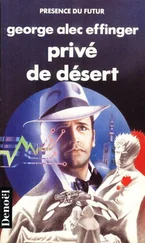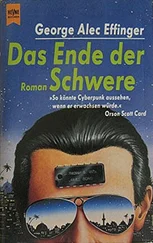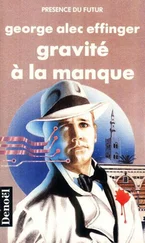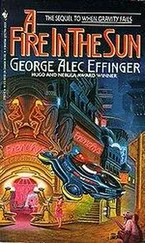“The two with the old pistol, the two throat-slashings. Sure, you remember. Or have you been too busy rounding up jaywalkers again?”
He shot me an ugly look and ran a finger along a heavy jaw that badly needed shaving. “I remember,” he said bluntly. “Why does Bey think this concerns him?”
“Three of the four victims did odd jobs for him, back in the days when they had a little more spring in their step. He just wants to make sure that none of his other employees get the same treatment. Papa has a lot of civic consciousness that way. I don’t think you appreciate that about him.”
Okking snorted. “Yeah, you right,” he said. “I always thought those two sex-changes worked for him. They looked like they were trying to smuggle cantaloupes under their sweaters.”
“Papa thinks these murders are aimed at him.”
Okking shrugged. “If they are, those killers are lousy marksmen. They haven’t so much as nicked Papa yet.”
“He doesn’t see it that way. The women who work for him are his eyes, the men are his fingers. He said that himself, in his own warm and wonderful way.”
“What was Abdoulaye, then, his asshole?”
I knew that Okking and I could go on like that all night. I briefly explained the unusual proposition Friedlander Bey had asked me to deliver. As I expected, Lieutenant Okking had as little faith as I. “You know, Audran,” he said dryly, “official law-enforcement groups worry a lot about their public image. We get enough beating-up in the news media as it is, without having to go out on the front steps and kiss ass with somebody like Friedlander Bey because nobody thinks we can do a damn thing about these murders without him.”
I patted the air to make it all better between us. “No, no,” I said, “it isn’t that at all. You’re misunderstanding me, you’re misunderstanding Papa’s motives. No one’s saying you couldn’t nail these murderers without help. These guys aren’t any more clever or dangerous than the scruffy, beetle-headed crumbs you pull in here every day. Friedlander Bey only suggests that because his own interests are directly involved, teamwork might save everybody time and effort, as well as lives. Wouldn’t it be worth it, Lieutenant, if we keep just one of your uniformed cops from stopping a bullet?”
“Or one of Bey’s whores from annexing a butcher knife? Yeah, listen, I already got a call from Papa, probably while you were on your way over here. We went through this whole song-and-dance already, and I agreed to a certain point. A certain point . Audran. I don’t like you or him trying to make police policy, telling me how to run my investigation, interfering in any way. Understand?”
I nodded. I knew both Lieutenant Okking and Friedlander Bey, and it didn’t make any difference what Okking said he didn’t want; Papa’d get his way anyhow.
“Just so we understand each other on this,” said the lieutenant. “The whole thing is unnatural, like rats and mice going to church to pray for the recovery of a cat. When it’s over, when we have those two killers, don’t expect any more honeymoon. Then it will be seizure guns and batons and the same old harassment on both sides.”
I shrugged. “Business is business,” I said.
“I’m real tired of hearing that line,” he said. “Now get out of my sight.”
I got out and took the elevator down to the ground floor. It was a nice, cool evening, a swelling moon slipping in and out of gleaming metal clouds. I walked back to the Budayeen, thinking. In three days I was going to have my brain wired. I’d avoided that fact since I left Friedlander Bey’s; now I had all the time in the world to think about it. I felt no excitement, no anticipation, only dread. I felt that, somehow, Marîd Audran would cease to be and someone new would awaken from that surgery, and that I’d never be able to put my finger on the difference; it would bother me forever, like a popcorn hull wedged permanently between my teeth. Everyone else would notice the change, but I wouldn’t because I was on the inside.
I went straight to Frenchy’s. When I got there, Yasmin was working on a young, thin guy wearing white baggy pants with drawstrings around the ankles and a gray salt-and-pepper sport coat about fifty years old. He probably bought his whole wardrobe in the back of some antique shop for one and a half kiam; it smelted musty, like your great-grandmother’s quilt that has been left in the attic too long. The girl on stage was a sex-change named Blanca; Frenchy had a policy about not hiring debs. Girls were all right with him, and debs who’d had their full changes, but the ones stuck indecisively in the middle made him feel that they might get stuck sometime in the middle of some other important transaction, and he just didn’t want to be held responsible. You knew when you went into Frenchy’s that there wasn’t going to be anybody in there with a cock bigger than yours unless it was Frenchy himself or one of the other customers, and if you found out that awful truth you had nobody to blame but yourself.
Blanca danced in a peculiar, half-conscious way that was common among dancers all up and down the Street. They moved vaguely in time to the music, bored and tired and waiting to get out from under the hot lights. They stared at themselves incessantly in the smeared mirrors behind them, or they turned and stared at their reflections across the room behind the customers. Their eyes were fixed forever in some empty space about a foot and a half above the customers’ heads. Blanca’s expression was a faint attempt to look pleasant — “attractive” and “alluring” weren’t in her professional vocabulary — but she looked as if she’d just had a lot of nerve-deadening drug pumped into her lower jaw and she hadn’t decided if she liked it yet. While Blanca was on stage she was selling herself — she was promoting herself as a product entirely separate from her own self-image, herself as she would be when she came down from the stage. Her movements — mostly weary, halfhearted imitations of sexual motions — were supposed to titillate her watchers, but unless the customers had had a lot to drink or were otherwise fixated on this particular girl, the dancing itself would have little effect. I’d watched Blanca dance dozens, maybe hundreds, of times; it was always the same music, she always made the same gyrations, the same steps, the same bumps, the same grinds at the same instants of each song.
Blanca finished her last number and there was a scattering of applause, mostly from the mark who had been buying her drinks and thought he was in love with her. It takes a little longer for you to establish an acquaintance in a place like Frenchy’s — or any of the other bars along the Street. That seems like a paradox, because the girls rushed up to grab any single man who strayed into the place. The conversation was so limited, though: “Hi, what’s your name?”
“Juan-Javier.”
“Oh, that’s nice. Where you from?”
“Nuevo Tejas.”
“Oh, that’s interesting. How long have you been in the dty?”
“A couple of days.”
“Want to buy me a drink?”
That’s all there is, there ain’t no more. Even a top-notch international secret agent couldn’t relay more information in that small amount of time. Beneath it all was a constant undercurrent of depression, as if the girls were locked into this job, although the illusion of absolute freedom hovered almost visibly in the air. “Any time you want to quit, honey, you just walk out that door.” The way out the door, though, led to one of only two places: another bar just like Frenchy’s, or the next step down the ladder toward the deadly bottom of the Life: “Hi, handsome, looking for some company?” You know what I mean. And the income gets lower and lower as the girl gets older, and pretty soon you get people like Maribel turning tricks for the price of a shot glass of white wine.
Читать дальше












